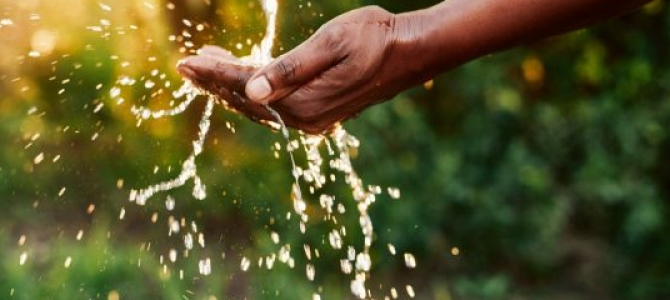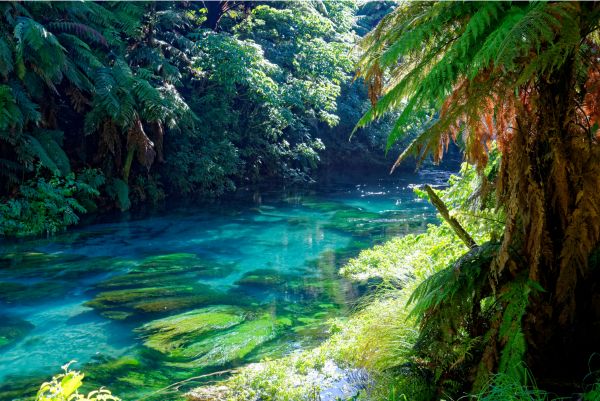 Shopping Cart
Shopping Cart
26 April 2024
Understanding the Impact of Water Conservation on Our Ecosystems

Water – the element that sustains life on Earth. This precious resource not only supports human existence but is also the lifeblood of our planet's diverse ecosystems. From rushing rivers to the depths of oceans, water is home to countless species and underpins complex food webs. However, our practices continue to place a strain on this vital resource, and the repercussions are profound.
As the global population continues to grow, further strain is placed on valuable water resources, coupled with changing weather patterns around the world, making water conservation efforts even more crucial to populations around the globe.
In this extensive exploration, we'll uncover the far-reaching implications of water conservation on the balance and health of our ecosystems.
The Role of Water in Ecosystems
Ecosystems are dynamic communities of organisms and their environments, interacting as functional units in a flow of energy and cycling of resources. Water is an essential component that shapes and influences these ecosystems at every level. Without it, life as we know it suddenly teeters on the brink of extinction.
Exploring the diverse ecosystems across the globe, from the lush landscapes of New Zealand to the rugged outback of Australia, the varied terrains of the USA, and the green expanses of the UK, offers a fascinating insight into the role of water in sustaining life.

New Zealand's ecosystems, for example, range from rainforests to alpine grasslands, each uniquely dependent on regular rainfall patterns to flourish. In contrast, Australia's ecosystems, including its iconic bushlands and coral reefs, face severe challenges from both drought and overuse of water resources, highlighting the critical need for water conservation. Similarly, the USA boasts a vast array of ecosystems, from the wetlands of Florida to the forests of the Pacific Northwest, each ecosystem requiring a delicate balance of moisture to maintain its unique biodiversity. Meanwhile, the UK, with its cooler climate, relies on consistent water availability to sustain its rich agricultural lands and native wildlife habitats.
These varying regions exemplify the global necessity of protecting our water resources to preserve the planet's rich tapestry of life.
Water as a Vital Resource
No matter where you are in the world, every flora and fauna, from the tiniest microbe to the largest mammal, requires water to survive. It supports plant growth, provides hydration for animals, and is a medium within which countless organisms live. Aquatic ecosystems, from the smallest ponds to the vast oceans, are particularly sensitive to water availability, with even subtle changes in water levels and quality impacting the entire community of species that dwell within.
The Threat of Water Scarcity
When water scarcity occurs, either through overuse or climate-induced changes, it can devastate ecosystems. Reduced water levels can lead to the fragmentation and loss of habitats, endangering species that are adapted to specific aquatic environments. Additionally, the lack of water flow can exacerbate water pollution, concentrating contaminants in smaller volumes and effectively poisoning areas that had previously supported life.
Benefits of Water Conservation for Ecosystems
The act of water conservation isn't just about human sustainability; it's also a critical measure to protect and maintain the ecological integrity of our Earth's natural systems.
Preserving Aquatic Habitats
By curtailing excessive water withdrawal, we can safeguard the integrity of aquatic habitats. This means ensuring that the flow of rivers and streams is maintained, that wetlands have access to the water they need, and that lakes and oceans are not subject to excessive nutrient runoff and other forms of pollution that thrive in the absence of dilution.
Maintaining Biodiversity
Effective water conservation efforts have the potential to maintain healthy ecosystems and the biodiversity they support. A diverse range of animal and plant species can withstand natural fluctuations in water availability, but when these fluctuations become extreme, they often lead to the decline of less adaptable species, risking the collapse of the ecosystem's intricately balanced web of life.
Mitigating Climate Change
Conserving water can play a role in mitigating climate change. For example, the restoration and conservation of peatlands and forests that rely on consistent water levels act as carbon sinks, drawing down atmospheric CO2. Conversely, when water is mismanaged, such as in the case of dams and diversions, these ecosystems become carbon sources, contributing to the greenhouse effect.
Practical Water Conservation Tips for Homeowners
While the sheer scale of our global water usage can feel staggering, every drop counts when it comes to conservation efforts. Here are some practical tips homeowners can follow to reduce their water footprint.
Reduce Usage Indoors and Outdoors
Indoors, simple actions like fixing leaks, installing low-flow appliances, and taking shorter showers can save significant amounts of water. Outdoors, intelligent landscaping choices and efficient irrigation methods can dramatically cut down on the amount of water needed to maintain your garden.
Smart Water Tank Monitoring
In the context of rainwater harvesting, innovative technology like Smart Water tank level indicators are revolutionising the way we manage this practice. By accurately sensing and reporting water levels in tanks, they enable precise control over water usage and better planning for recharging tanks during the wetter seasons.
Xeriscaping Techniques
Xeriscaping is a water-efficient landscaping approach that reduces or eliminates the need for supplemental water. This involves choosing native or drought-resistant plants, using organic mulch to retain soil moisture, and incorporating designs that minimise evaporation and runoff.
Educational Initiatives and the Call for Community Awareness

True change in water conservation starts with education and a shared understanding of the issues at hand. Through educational initiatives, such as school programs and community outreach, we can foster an appreciation for the interdependence of all life on water and the importance of preserving this shared resource.
Teaching Water Conservation in Schools
It is crucial to embed water conservation education within the curriculum, from the earliest levels of schooling. By teaching our youth how their water usage impacts the environment, we empower the next generation to make informed decisions and take personal responsibility for conservation.
Raising Community Awareness
Community-driven campaigns play a pivotal role in raising awareness and driving action. By engaging local leaders, activists, and citizens, we can instigate collective efforts to conserve water at a community level, leading to tangible and significant benefits for our ecosystems.
In Conclusion: An Urgent Need for Collective Efforts
In the face of growing water scarcity and the mounting pressures on global ecosystems, the call for water conservation is more urgent now than ever before. We must recognise the role we each play in the delicate balance of nature and take proactive steps to reduce our impact. Water, after all, isn't just a precious resource; it's the essence of life itself. Through collective and individual actions, we can ensure a sustainable future, not only for ourselves but for the rich tapestry of life that relies on water for its survival.
As we wade into the uncertain waters of climate change and environmental upheaval, the choices we make regarding water conservation will ripple out, affecting all corners of the Earth. Whether it's through small daily habits or robust conservation initiatives, each effort contributes to the broader goal of preserving our ecosystems for generations to come. The time to act is now, and the responsibility to protect our water lies with us all.
